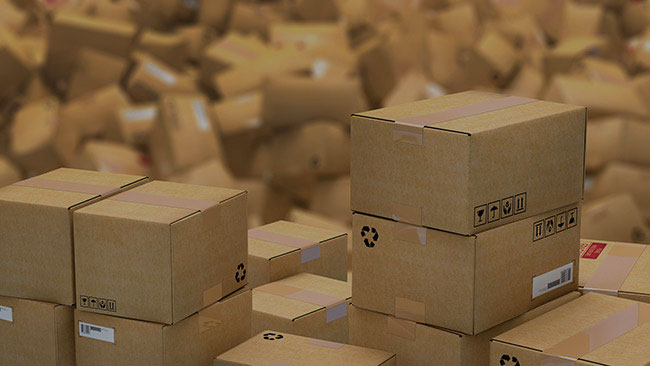
Why can customs hold shipments?
You sent an international parcel or were expecting to receive one. But instead of arriving, you hear it's held by customs. How frustrating! Different carriers may say it in different ways, but they mean the same thing: customs needs more information to decide whether your goods can be imported or not.
On this page we explain why customs can sometimes hold shipments, and what you can do about it.
Who are customs and why do they hold goods?
Customs are a government authority that monitors goods entering and leaving a country. Arriving goods must comply with local regulations. If they don't, customs will hold them.
A parcel can be held for something simple, like missing the receiver’s contact details on the paperwork; or for something more complex, like a large food shipment missing ingredient labeling in the local language.
What are the most common reasons for holding a shipment?
Three of the main reasons why customs will hold a parcel are:
- An unclear goods description
- Ambiguous documentation
- Extra documents are required
Let's look at each reason in detail.
1. An unclear goods description
An international parcel always needs a detailed goods description, where the sender describes the contents. These details include the quantity, what it is, the material, country of origin and HS code. Add the brand name and model number too, if you have them.
An example goods description could be: Two pairs of kids’ rain boots made in France from natural rubber with cotton lining. Plus the HS code.
A vague description makes it hard for customs officers to charge the right duties and taxes, or to check if local regulations apply. So they hold the parcel until the right information is provided.
2. Ambiguous documentation
Unclear paperwork can be anything from an incorrect valuation of the parcel's contents, to missing details on the commercial invoice. This can be interpreted as evasive or misleading, which is why customs will hold the shipment until they know more.
Customs officers might request missing information. If they don't get the right details, or can't validate them, the parcel might be sent back.
3. Extra documents are required
Sometimes, to allow certain goods to enter, a country requires extra regulatory proof from the sender or receiver. This could be a certificate, or an approval from a government authority like the FDA in the US. So always check import requirements in the destination country.
What can I do to get my parcel released?
If your parcel is stopped at customs, your carrier may contact you for more information. Your carrier can tell you what they need, so your parcel can be cleared and released for delivery.
How can I avoid a customs delay next time?
If you're the sender, make sure your shipping paperwork is complete and accurate – especially the goods description.
If you're the receiver, give the sender your complete address, contact information and business details, if relevant. And check your country's import requirements in advance.
Relevant topics
The information provided on this page does not constitute legal, tax, finance, accounting, or trade advice, but is designed to provide general information relating to shipping. The Shipping Channel content, information, and services are not a substitute for obtaining the advice of a competent professional, for example a licensed attorney, law firm, accountant, or financial adviser. If you’re unsure of the shipping requirements that apply to you, check with your carrier and make sure to check the rules and regulations of the country you’re shipping from and to prior to shipping. You can find this information on government websites.


